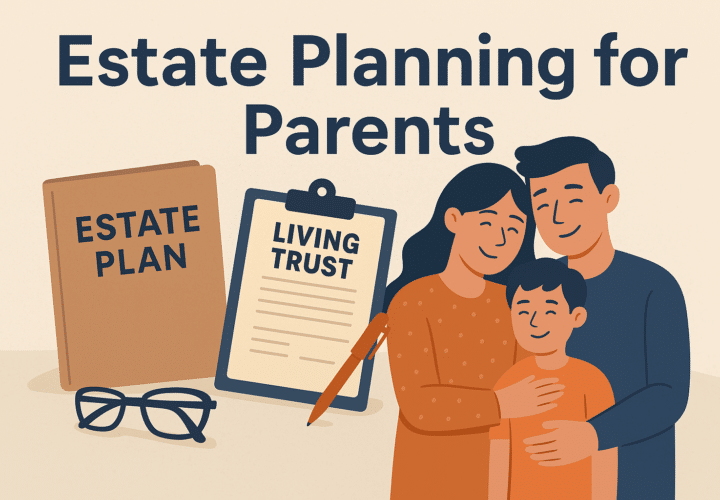Understanding Ancillary Probate in Florida
Florida is a popular destination for seasonal residents, often called snowbirds, who own vacation homes or other real estate in the state. While enjoying Florida’s warm climate is a great advantage, owning property in multiple states can create legal complexities when an owner passes away. If a non-Florida resident dies while owning real estate or other assets in Florida, their estate may be required to go through ancillary probate—a separate probate process in Florida that runs alongside probate in the resident’s home state.
For snowbirds and out-of-state property owners, understanding ancillary probate in Florida and taking steps to minimize its impact can save time, money, and stress for heirs. In this guide, we’ll explain how ancillary probate works, how to reduce probate complications, and why working with a Sarasota probate attorney can streamline the process.
What Is Ancillary Probate in Florida?
Ancillary probate is a secondary probate proceeding required when a non-resident dies while owning property in Florida. Since Florida courts only have jurisdiction over assets located within the state, the estate must go through Florida probate courts in addition to the probate process in the deceased’s home state.
When Is Ancillary Probate Required?
Ancillary probate is typically needed when a non-resident decedent owns:
- Florida real estate, such as a vacation home or rental property.
- Vehicles or boats titled in Florida.
- Business interests or financial assets located in Florida that do not transfer automatically.
If the deceased owned jointly held property with rights of survivorship or assets held in a living trust, ancillary probate may not be necessary.
How the Ancillary Probate Process Works
The process for ancillary probate in Florida is similar to standard probate but involves coordination between courts in different states. Here’s an overview of the steps involved:
Step 1: File the Probate Case in the Home State
The primary probate case is opened in the state where the deceased resided at the time of death. The personal representative (executor) is appointed by the court to administer the estate.
Step 2: Open an Ancillary Probate Case in Florida
Once the primary probate process begins, the personal representative (or a Florida-based attorney) must petition the Florida probate court to begin ancillary administration.
Step 3: Appoint a Florida Personal Representative
Florida law requires that an executor or personal representative be either a Florida resident or a close relative of the deceased. If the executor named in the primary probate case does not meet Florida’s residency requirements, the court may require the appointment of a Florida-based personal representative.
Step 4: Identify and Distribute Florida Assets
The Florida personal representative must identify and distribute the deceased’s Florida assets according to the will (if applicable) or Florida intestate succession laws if there is no will.
Step 5: Settle Debts and Close the Estate
Before Florida assets are distributed to heirs, outstanding debts, property taxes, and probate-related costs must be resolved. Once completed, the ancillary probate case can be closed, and assets are transferred to beneficiaries.
For assistance in navigating the Florida probate process, visit Scovills’ Probate Services.
How to Minimize Ancillary Probate Issues
Ancillary probate can be time-consuming and expensive, but proper estate planning can help minimize the burden. Here are key strategies to reduce probate complications:
1. Create a Florida Living Trust
Placing Florida real estate into a revocable living trust allows assets to transfer directly to beneficiaries without the need for probate. This helps avoid both primary and ancillary probate proceedings.
2. Own Property Jointly with Rights of Survivorship
If a Florida property is titled as joint tenants with rights of survivorship (JTWROS) or tenancy by the entirety (for married couples), the surviving owner automatically inherits the property, avoiding probate.
3. Use Transfer-on-Death (TOD) or Payable-on-Death (POD) Designations
Certain financial accounts, including bank accounts, investment accounts, and even real estate in some cases, allow owners to name beneficiaries who will automatically receive the asset upon the owner’s death, bypassing probate.
4. Consider Florida Domicile Planning
For snowbirds who spend significant time in Florida, it may be beneficial to establish Florida residency to consolidate probate proceedings into one state. This requires updating a will, filing a declaration of domicile, and changing tax filings to reflect Florida residency.
5. Work with a Sarasota Probate Attorney
A probate lawyer in Sarasota can assist with estate planning strategies that reduce the likelihood of needing ancillary probate and ensure a smoother transition of assets.
For estate planning services that help avoid probate complications, visit Scovills.
The Role of a Sarasota Probate Attorney in Ancillary Probate
Navigating the complexities of ancillary probate in Florida often requires legal assistance to ensure assets are handled properly. A Sarasota probate attorney can help:
- Coordinate with out-of-state attorneys and courts to streamline probate administration.
- File necessary petitions with the Florida probate court.
- Assist in appointing a Florida personal representative if needed.
- Ensure that Florida assets are properly distributed according to the will or Florida law.
- Help heirs minimize delays and avoid unnecessary legal expenses.
Whether you are an executor managing ancillary probate or a snowbird looking to plan ahead, working with a Sarasota probate attorney can make the process more efficient.
For legal guidance on probate matters, visit Scovills’ Probate Services.
Protecting Your Florida Property from Probate Delays
For snowbirds and out-of-state residents who own property in Florida, ancillary probate can add unnecessary complications and costs to the estate administration process. Fortunately, with proactive estate planning, the need for ancillary probate can often be reduced or eliminated.
Key Takeaways:
- Ancillary probate in Florida is required when a non-resident dies owning real estate or other assets in the state.
- The process involves opening a secondary probate case in Florida, which runs alongside the primary probate proceeding in the decedent’s home state.
- Steps such as creating a living trust, owning property jointly, or using transfer-on-death designations can help avoid probate complications.
- A Sarasota probate attorney can assist with navigating ancillary probate, ensuring Florida assets are properly handled, and helping families avoid legal delays.
If you or a loved one owns property in Florida and want to ensure a smooth estate transition, consulting with a Sarasota probate attorney can provide peace of mind. Contact Scovill- Sarasota Probate Attorney today for assistance with estate planning and probate matters.



